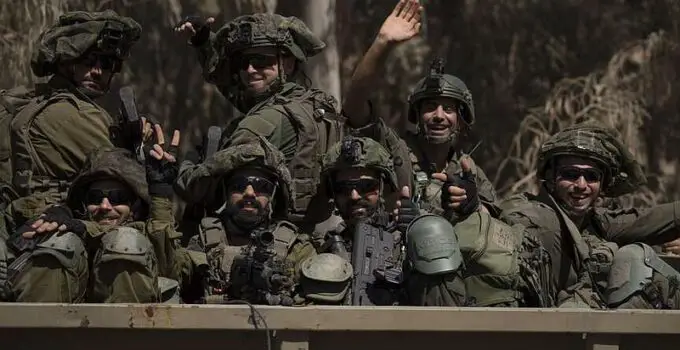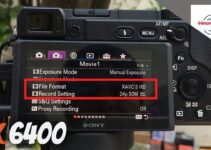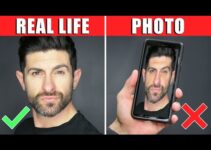Are soldiers allowed to wave to the camera?
Are soldiers allowed to wave to the camera? This simple gesture, often seen as friendly and harmless, can carry different meanings in military settings.
For soldiers, every movement is carefully scrutinized, especially when they are in uniform and on duty. Military protocols typically require soldiers to maintain a professional demeanor at all times, particularly when in front of cameras, as their actions represent their unit, country, and mission.
While a wave might seem innocent, in certain situations, it could be viewed as a security risk or a breach of discipline, making it a topic of careful consideration in the armed forces.
Here cops required to have body cameras?
Are soldiers allowed to wave to the camera?
Are soldiers allowed to wave to the camera?
Whether soldiers are allowed to wave to the camera depends largely on the context, location, and military protocols governing their behavior.
When on duty, especially in high-security or combat zones, soldiers are expected to maintain strict professionalism. Waving or other informal gestures could be seen as distractions or potential security risks, as they may inadvertently disclose the soldier’s location, condition, or engagement status to unintended viewers.

However, during non-combat situations, such as ceremonial events, parades, or public relations activities, soldiers may have more leeway to interact casually, including waving.
Even then, the gesture is often done within a controlled environment and in a way that aligns with military standards and discipline. Each military branch and situation may have its own regulations regarding personal expressions on camera, but generally, soldiers are trained to stay composed and focused on their duties, leaving little room for unscripted gestures like waving.
Are US soldiers allowed to video call?
Are soldiers allowed to wave to the camera?
U.S. soldiers are generally allowed to video call, but their ability to do so is regulated and varies depending on deployment location, security level, and duty status.
In non-combat zones or bases with secure internet access, soldiers can often video call friends and family during off-duty hours. This communication is encouraged to support morale, especially during long deployments.
However, even in these settings, soldiers are advised to follow operational security (OPSEC) guidelines to avoid sharing sensitive information.
In combat zones or areas with high security concerns, video calls may be limited or prohibited to prevent unintentional leaks of information, like location details or mission activities. When allowed, video calls might be restricted to specific times or monitored to maintain security.
Overall, while video calls are a valuable tool for staying connected, access is determined by the military’s commitment to operational security and the safety of personnel.
How to tell if a soldier is real?
Are soldiers allowed to wave to the camera?
It is not strictly true that U.S. soldiers can’t make video calls while in camp, but their ability to do so depends on the camp’s location, security level, and available infrastructure.
In many domestic and overseas bases outside of active combat zones, soldiers are often allowed to make video calls during their personal time. These calls are encouraged as a way to support mental health and morale by helping soldiers stay connected with family and friends.
However, restrictions apply in high-security environments or combat zones, where video calls could compromise security by inadvertently revealing sensitive information or locations.
In such cases, soldiers may be restricted to secure communication channels only. Additionally, limited internet access or bandwidth in remote or combat regions can make video calls impractical. Ultimately, while video calling is sometimes permitted in camps, it is subject to military regulations designed to protect operational security and soldier safety.
Related faq’s
Is it true that a soldier is not allowed to use a camera or video call when they are on a mission?
Yes, it is generally true that soldiers are not allowed to use cameras or make video calls while on a mission, especially in high-security or combat situations.
These restrictions are in place to protect operational security (OPSEC) and ensure mission success by preventing the accidental disclosure of sensitive information, locations, or tactics. Unauthorized photography or communication could pose serious risks, revealing positions or alerting adversaries.
Official documentation or media during missions is typically handled by authorized military personnel following strict security guidelines. Soldiers are trained to prioritize mission focus and follow these regulations to ensure their safety and that of their unit.
Is it legal for a soldier to film a deployment on an action cam and put it on the internet?
It is generally not legal for a soldier to film a deployment on an action camera and post it on the internet without prior approval from military authorities.
Military regulations strictly control the release of deployment footage to prevent sensitive information, such as locations, tactics, or personnel details, from being publicly disclosed. Unauthorized sharing of such content can violate operational security (OPSEC) rules, potentially endangering missions and fellow soldiers.
Soldiers who wish to share deployment-related media must follow official guidelines and obtain permission, as failure to do so can lead to disciplinary actions, including reprimands, fines, or other penalties.
Do soldiers behave differently when they realize a TV camera is filming them?
Yes, soldiers often behave differently when they realize a TV camera is filming them.
This change in behavior is a natural response to being in the spotlight, as soldiers may become more aware of their actions and appearance.
Here, how to get the SD card ou of the camera?
They might adopt a more professional or composed demeanor, aware that their conduct reflects not only on themselves but also on their unit and the military.
This heightened awareness is part of the “camera effect,” where individuals modify their behavior due to the presence of cameras, which can influence body language, tone, and overall interactions.
Are military men allowed to video chat if they are deployed?
Yes, military personnel are generally allowed to video chat while deployed, but their ability to do so depends on the location, security restrictions, and available technology.
In non-combat zones or secure bases, soldiers can often use video calls to stay in touch with family and friends during off-duty hours. However, in combat zones or high-security areas, video chatting may be restricted to protect operational security (OPSEC) and prevent accidental leaks of sensitive information.
Internet access may also be limited or monitored, which can impact the availability of video chat. Ultimately, usage is determined by security needs and available resources.
Is it true that soldiers can’t have cameras on their phones?
It is not true that soldiers cannot have cameras on their phones, but their use is regulated. In non-combat zones or bases, soldiers are generally allowed to carry phones with cameras, though they must follow military guidelines on what can be photographed or shared.
In high-security areas or active combat zones, however, the use of phones with cameras may be restricted or prohibited to prevent the accidental release of sensitive information, such as locations, equipment, or operations. Soldiers are trained to adhere to strict operational security (OPSEC) protocols to ensure their safety and protect military operations.
Conclusion
In conclusion, while soldiers are generally allowed to wave to the camera in non-sensitive situations, such as during public events or parades, they must always adhere to military protocols.
In combat zones or high-security environments, actions like waving to the camera may be restricted to ensure operational security (OPSEC) and prevent unintentional disclosures of sensitive information.
The military emphasizes professionalism and discipline, and soldiers are trained to prioritize mission success and security over casual gestures. Ultimately, whether or not a soldier can wave to the camera depends on the context and adherence to military regulations.







